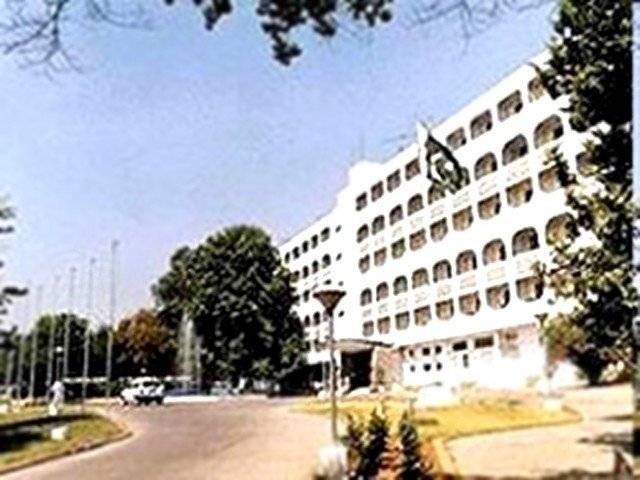Islamabad rejects India's allegations regarding UN report
Shares

Islamabad rejected on Thursday India’s claims regarding the Taliban and Pakistan, dubbing them malicious and slanderous.
A statement issued by the Foreign Office categorically rejected the allegations leveled by the spokesperson of the Indian Ministry of External Affairs (MEA).
According to the FO, the Indian spokesperson “misrepresented the Eleventh Report of the United Nations Analytical Support and Sanctions Monitoring Team (MT) concerning the Taliban and other associated individuals and entities constituting the threat to peace, stability and security of Afghanistan, to slander Pakistan”.
Islamabad insisted that India’s “malicious allegations” aimed to mislead the international community.
“There is no reference to “safe havens” in Pakistan in the MT report,” stated the FO, adding that the report was “based on briefings provided in Afghanistan to the MT by certain quarters who have long expressed skepticism about the Afghan peace process”.
The statement further claimed that this skepticism was not shared by the global community at large, and especially not by the UN security council and the UN secretary general.
“The MEA’s distortion, and falsification of the contents of the MT report and its concocted allegations reveal that India’s agenda is to create complications for the Afghan peace process,” read the statement.
The FO stressed that Pakistan has warned the international community about the “role of spoilers” acting within and outside Afghanistan.
It further made note of Pakistan’s repeated emphasis on “India’s sponsorship of terrorist organisations in Afghanistan against Pakistan”.
According to the FO, the MT report supports Pakistan’s stance that the Tehreek-e-Taliban Pakistan (TTP) was operating from Afghanistan, with Indian support, and remains a threat to Pakistan and other countries in the region.
The statement added that Pakistan has proposed that “Indian terrorism facilitators” be listed on the UN Security Council’s list and has submitted evidence regarding the same against several such groups. The FO expressed hope that the UN would designate said groups as such soon.
“The MT has also assessed that foreign terrorist fighters from India are traveling to Afghanistan to join the ISIL-Khorasan (ISIL-K),” maintained the FO, while noting that the UN Security Council resolutions required India to prevent the travel of terrorists to Afghanistan to join ISIL-K.
According to the FO, “the report also notes that an Indian national, the leader of AI Qaeda in the Indian Subcontinent, was killed by international forces last year in Afghanistan”.
Islamabad maintained that earlier reports of the MT had also highlighted the growing strength of ISIL in India, and its role in the Easter Sunday attack in 2019.
The FO stressed that India has been “using terrorism as state policy to destabilize its neighboring states, including Pakistan”.
Islamabad gave the example of the plight of the Kashmiri people in Indian Occupied Jammu and Kashmir and stated that the Kashmiri people have long suffered due to the Indian state’s terrorism.
It reminded the global community of the lockdown imposed in the disputed region by the Bharatiya Janata Party (BJP)-led extremist government on August 5, 2019, and the worsening aggression against the Kashmiri people by the Indian state. The FO also highlighted the BJP’s ideological stance, inspired by the Rashtriya Swayamsevak Sangh (RSS)
